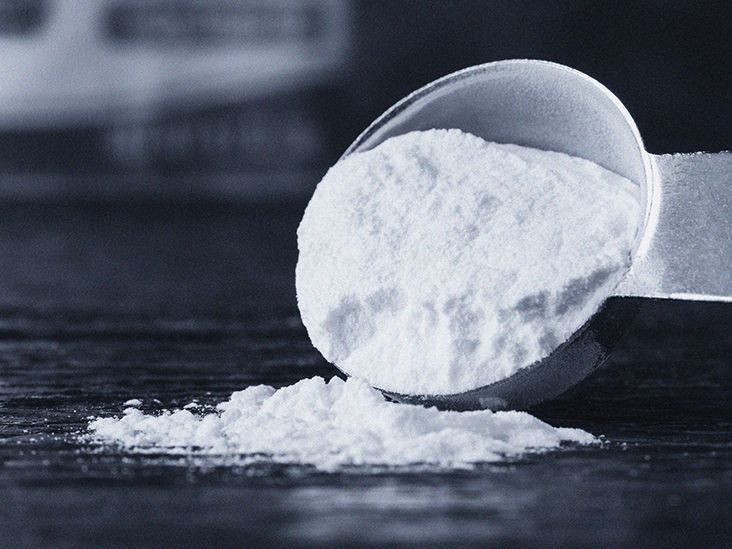Baking soda, or sodium bicarbonate, has long been a staple in households for cleaning, cooking, and even personal care. In recent years, some have promoted it as a natural remedy for weight loss, claiming that it helps burn fat, boost metabolism, and reduce bloating. But are these claims grounded in science—or are they just another internet myth? Let’s take a closer look.
Baking soda, or sodium bicarbonate, is a white crystalline powder that is alkaline in nature. It is commonly used as a leavening agent in baking, helping dough rise by producing carbon dioxide gas. Beyond the kitchen, baking soda is known for its ability to neutralize odors, clean surfaces, and even relieve minor skin irritations. Given its wide range of uses, it is no surprise that people have begun to explore its potential benefits for weight loss. Proponents of this idea suggest that baking soda can help balance the body's pH levels, improve digestion, and boost metabolism, ultimately leading to weight loss.
However, it is crucial to understand that these claims are largely anecdotal and lack scientific backing. While baking soda may have some effects on digestion and pH balance, these do not directly translate to weight loss. Moreover, excessive consumption of baking soda can lead to adverse effects, such as electrolyte imbalances and gastrointestinal issues. As such, it is important to approach the use of baking soda for weight loss with caution and to consult with a healthcare professional before making any significant changes to your diet or lifestyle.
Baking soda has long been a staple in households for its various uses, ranging from baking to cleaning. Recently, it has also been explored as a potential weight loss aid. However, it is important to understand the science behind these claims and to separate fact from fiction. This article delves into the potential benefits, risks, and misconceptions associated with using baking soda for weight loss, providing a balanced perspective on this trending topic.
Understanding Baking Soda
Baking soda, chemically known as sodium bicarbonate, is a naturally occurring compound that is alkaline in nature. It is widely used in cooking as a leavening agent and is known for its ability to neutralize acids. This property is what makes it effective in various household applications, such as cleaning and deodorizing.
The Claims: Baking Soda and Weight Loss
Proponents of baking soda for weight loss suggest that it can aid in weight management by balancing the body's pH levels, improving digestion, and boosting metabolism. Some also claim that it can enhance exercise performance, leading to increased calorie burn. However, it is important to note that these claims are largely anecdotal and not supported by robust scientific evidence.
pH Balance and Weight Loss
The idea that baking soda can balance the body's pH levels and promote weight loss is based on the belief that an alkaline environment is more conducive to weight loss. However, the human body tightly regulates its pH levels, and diet has minimal impact on this balance. As such, the notion that baking soda can significantly alter pH levels to promote weight loss is unfounded.
Digestion and Metabolism
Some believe that baking soda can aid digestion by neutralizing stomach acid, leading to improved metabolism and weight loss. While it is true that baking soda can temporarily relieve indigestion, there is no evidence to suggest that it has a significant impact on metabolism or weight loss.
Exercise Performance
There is some evidence to suggest that baking soda can enhance exercise performance by buffering lactic acid buildup in muscles. This could potentially lead to increased endurance and calorie burn. However, this effect is primarily observed in high-intensity exercise and may not translate to significant weight loss for most individuals.
Potential Risks and Considerations
While baking soda is generally safe for occasional use in cooking and cleaning, excessive consumption can lead to adverse effects. These may include electrolyte imbalances, increased blood pressure, and gastrointestinal issues such as nausea and diarrhea. It is important to use baking soda in moderation and to consult with a healthcare professional before incorporating it into your weight loss regimen.
Comparison Table: Baking Soda vs. Other Weight Loss Aids
| Weight Loss Aid | Potential Benefits | Scientific Evidence | Risks |
|---|---|---|---|
| Baking Soda | May improve exercise performance | Limited evidence for weight loss | Electrolyte imbalances, gastrointestinal issues |
| Green Tea | Boosts metabolism, rich in antioxidants | Moderate evidence for weight loss | Caffeine sensitivity, insomnia |
| Apple Cider Vinegar | May reduce appetite, improve digestion | Limited evidence for weight loss | Tooth enamel erosion, digestive discomfort |
| Intermittent Fasting | May improve metabolism, reduce calorie intake | Strong evidence for weight loss | Hunger, fatigue, nutrient deficiencies |
Popular Baking Soda Recipes
While the scientific evidence is limited, several recipes involving baking soda have circulated online as potential weight loss aids. These should be approached with caution and viewed as part of wellness folklore—not proven health strategies.
🍋 Baking Soda & Lemon Water
- 1/2 teaspoon of baking soda
- Juice of 1/2 lemon
- 1 glass of lukewarm water
- Mix thoroughly and drink on an empty stomach in the morning.
- ✨ Believed to aid digestion and reduce bloating.
⚠️ There is no clinical proof that this mixture leads to fat loss. Overuse of baking soda can affect electrolyte balance and cause side effects such as nausea or alkalosis.
🥣 Baking Soda Yogurt Bowl
- 1/2 cup plain yogurt
- 1/4 teaspoon baking soda
- Optional: honey, lemon zest, berries
- Stir and let sit for 5–10 minutes before eating.
- ✨ Touted by some for helping with digestion or acid reflux relief.
⚠️ Again, no scientific studies support weight loss from this recipe. It may temporarily reduce bloating for those with mild indigestion.
Final Thoughts
Baking soda has some legitimate uses for digestion and performance in specific athletic contexts—but its reputation as a weight loss miracle is overblown. Most of the claims you’ll find online are anecdotal at best and misleading at worst. While recipes like lemon-baking soda water or yogurt bowls may offer minor digestive relief, they should not replace healthy eating and exercise habits.
Ultimately, the best “weight loss recipe” is still a balanced diet, consistent movement, and evidence-based wellness strategies. If you're exploring natural remedies, stay informed, stay safe, and avoid falling for fads that promise more than they can deliver.
References:







